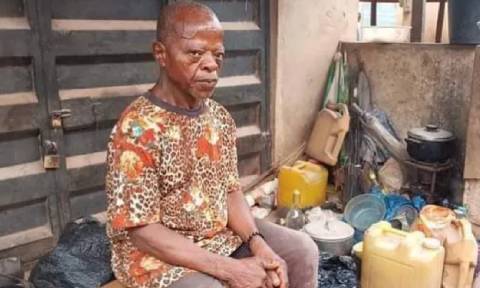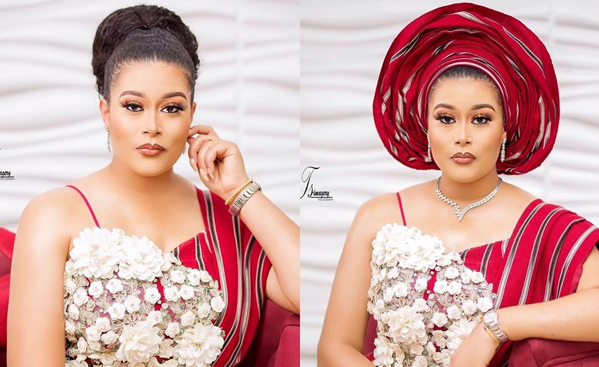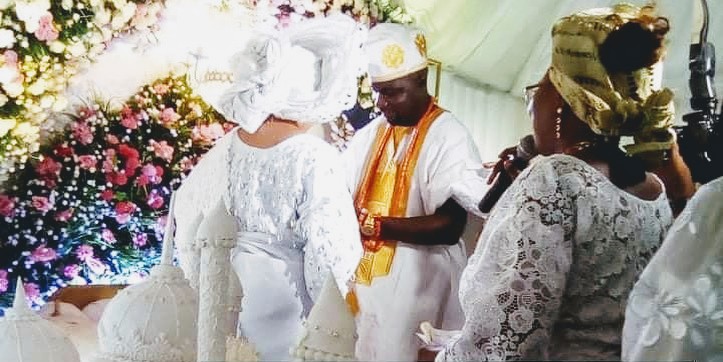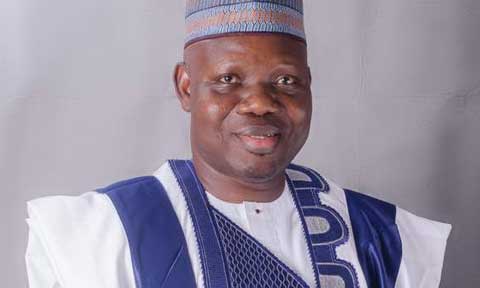
Wemimo Olu Paul In 1984, Wemimo Olu Paul organised the first Oluyole Musical Jamboree at the Liberty Stadium. His well-respected films would follow later in the same decade under the banner of Wemimo Promotions. In this interview with GBENGA OLUMIDE, the home video guru speaks about his ups and downs in the industry. Excerpts:
You studied marketing, how did you become a film producer?
That one too did not come overnight. In the year 1986 I was the first person to do a jingle for film exhibition and it happened at the Cultural Centre. I borrowed a film from Ade Love, Ija Orogun. I was the one to start this 12-3-6 syndrome; that is, exhibiting a film three times a day, before it was changed to 3 O’clock. I went to Ade Love on the day of the event to pick up the film and he queried me on why I put up three shows. I told him that it was a marketing strategy and he said Apa ma niwo omode yi o, se iran re mo iye ti won fin se fiimu ni?(You this lad is prodigal. Does your family know how much it cost to produce a film?)
That statement was terribly disturbing, there and then, I decided that I must leave promotion and go into production. So, in the year 1989, I contacted Mr. Aderemi Adedeji, a.k.a Olofana, to give me a story, and I asked Oga I-Show-Pepper to come and direct it for me. But deep inside me I knew I was doing my own youth service. I’d been to many locations. I was at Mo Se Bola tan and Orun Mooru produced by Baba Sala. I was at Ogun, Jayesinmi, and Ayanmo, produced by Hubert Ogunde.
I was watching because I knew I was going into film production. Before this time, when I resigned from the ministry of communication in 1978, I told my mother that I wanted to go into film production and she had asked me how they used to do it. I said I didn’t know. She said I should go and learn how to sell films for 10 years before I could go into production. That was how I started Wemimo Productions.
So you spent ten years learning how to sell films?
No, I spent just eight years … (laugh) I was able to scale through the last two years maybe because she was not alive by then. I know my mother would insist that I spend those ten years. So, during the production of Akunleyan I was watching, even when I wanted to contribute to the production, Oga I Show would just say, “Wemimo, dake enu ki lo mo nipa production. O lowo ni, oo ti mo ise yii” (shut up, what do you know about production, you are rich but know nothing about this business yet).
But at the end of the day they did the film and I was not so pleased, the film went up to four hours instead of two hours. So, I invited some artistes on my own and did it all over just to amend it. It was a terrible time because I had spent almost N25,000 on the film by then, and you could remember that a brand Peugeot 505 was being sold for only N5,000 then. After that I produced Ajagunmale and lateYomi Ogunmola directed it for me and I even told him point blank then that that film would be the last that I would invite anybody to come and direct for me.
I knew that there were some things that I might have forgotten then in production, so during the shooting of Senior Girls I acted as assistant director but there was a clash between myself and Ogunmola which I can’t be relating now, and due to this clash I cancelled the whole production. Two weeks after, I started the production again and I directed everything on my own and since then I’ve been producing my films.
People say your films are always ‘A’ rated. How do you go about getting storylines?
I want to tell you that anything one wants to do in life, one must set a standard for it. Deep inside, he must know what to do, how to do it and what the outcome should be. Right from the time I started production I told myself that I must not just be a producer or just another producer. If you see the war I fought with the like of Baba Ogunde, Ade Love and even my own brother, I Show Pepper, before video came into existence in Nigeria, I told myself that I must not fail. I get amused whenever I hear Igbo guys saying they were the first to start film production.
It is irritating but we Yorubas don’t argue too much; when it gets to this, events will show. No doubt, they are the first ones to commercialise it but I can tell you that the first video film was Ekun produced by late Alade Aromire, the second was Igi da by Latunde Films and my own was the third, Akunleyan. So, how I started motivated me into doing excellent films.
Your face hardly shows in your films. Is it because you can’t act or what?
I don’t see myself as an actor. I always tell people that ti ko ba si eeyan nile mo ni mo ma kopa (that it is only when there is no one to act a scene that I would come in), because you can’t be a jack of all trade. It is not possible for me to write scripts, produce and taking care of my welfare and those of my artistes. How can I go on the set again and say I want to act? I am not an actor. I’m a writer, director and producer. Nobody has a monopoly of knowledge. I buy ideas from people.
What has been your experience as a film producer?
That is a story for a book I’m trying to publish, The Journey So Far. I can tell you that for anybody that has my background it has not been easy and because nowadays we have a lot of mediocres in the industry, even mechanics are producing films now. I can tell you about carpenters who have produced films simply because they believe they can make money from it. But we are trying to make sure we keep the industry alive. It has not been easy for producers in Nigeria. You can imagine spending N3 million producing a film and sometimes you don’t make more than N500,000 as profit, it has not been easy being a producer.
What do you think has sustained you as a film producer in spite of the country’s economy?
How I started has been able to sustain me. People say, “With God all things are possible.” I’m always conscious of how I started film production. The like of Baba Ogunde have told us that video film cannot succeed. I remember when I produced Ajagunmale, Oga Ade Love of blessed memory produced one of the optical films. I was showing at D’Rovans Hotel and Odion Cinema Hall, he was at the Cultural Centre. Because of the like of Ade Love and Baba Ogunde who were my role models, I put many things into that film. How I started has been the driving force behind me and I’ve been trying not to disappoint my fans.
Your names, Wemimo Olu Paul, all sound modern. What is your ancestral name?
The Wemimo came from Sowemimo. I’m a Christian, I was born in the Catholic Church and I’ve been to many churches. At present, I worship at Winners Chapel and I know that Oso ko le we eniyan mo (wizardry can’t cleanse someone again), and your name has a lot to do with your calling. This prompted me to remove the prefix — So — so it remains Wemimo instead of Sowemimo. I’m the first generation of that name in my family.
How fulfilled are you?
Each time I go through my films I can tell you I’m well fulfilled. I don’t want to talk in terms of wealth now, but so far, I give all glory to God.

















